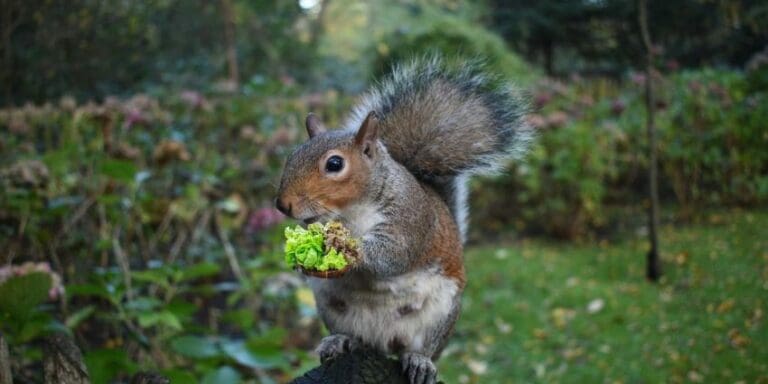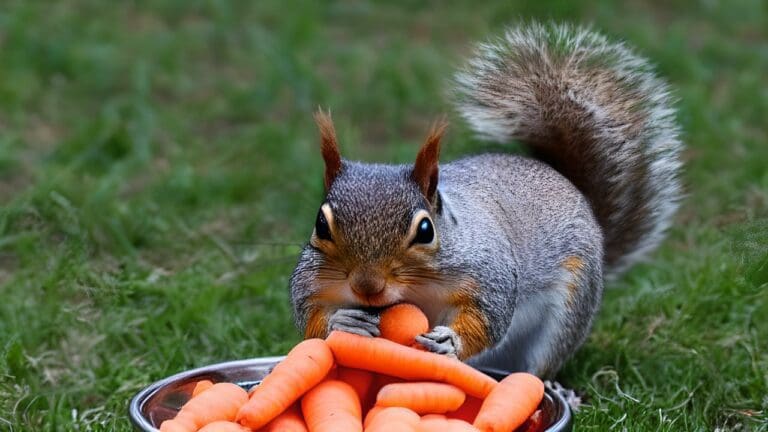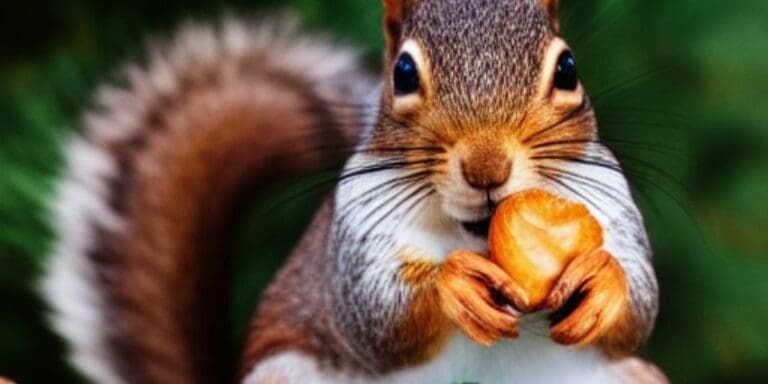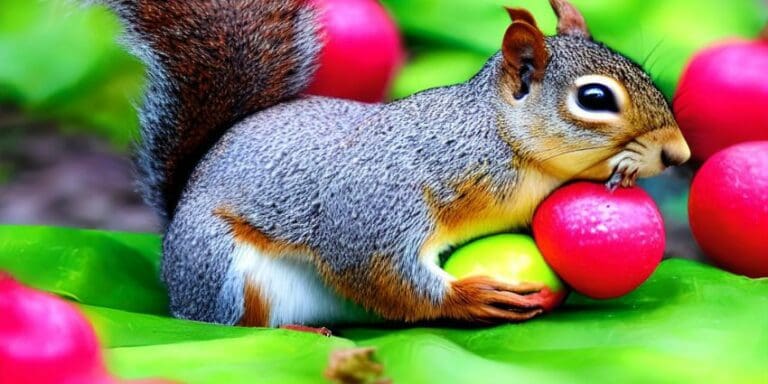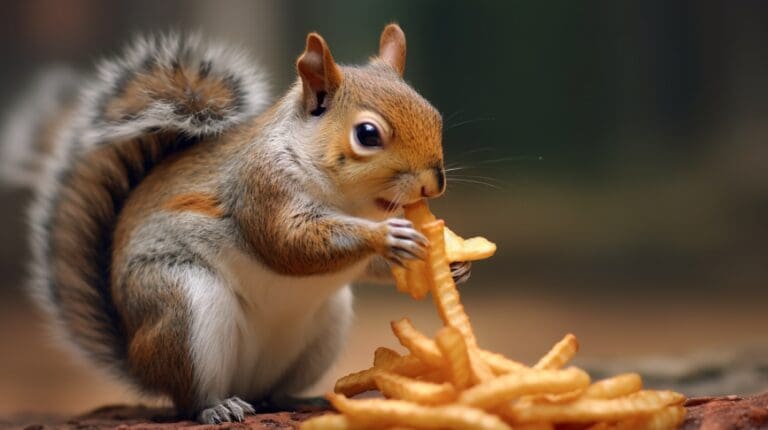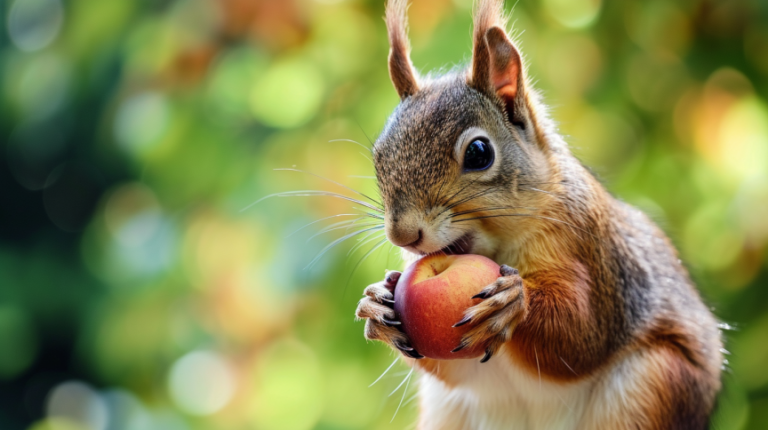Do Squirrels Eat Bugs? Read the Real Story Here
Do you ever wonder if squirrels have an adventurous palate? They’re always snacking on nuts, and squirrels also love to eat seeds. But do they ever crave a little bit of protein from a bug? It may seem like a bizarre question, but honestly, squirrels are amazing, and anything is possible.
Do squirrels eat bugs? Absolutely, yes, squirrels eat bugs. Let’s investigate a little further into the world of squirrel cuisine.
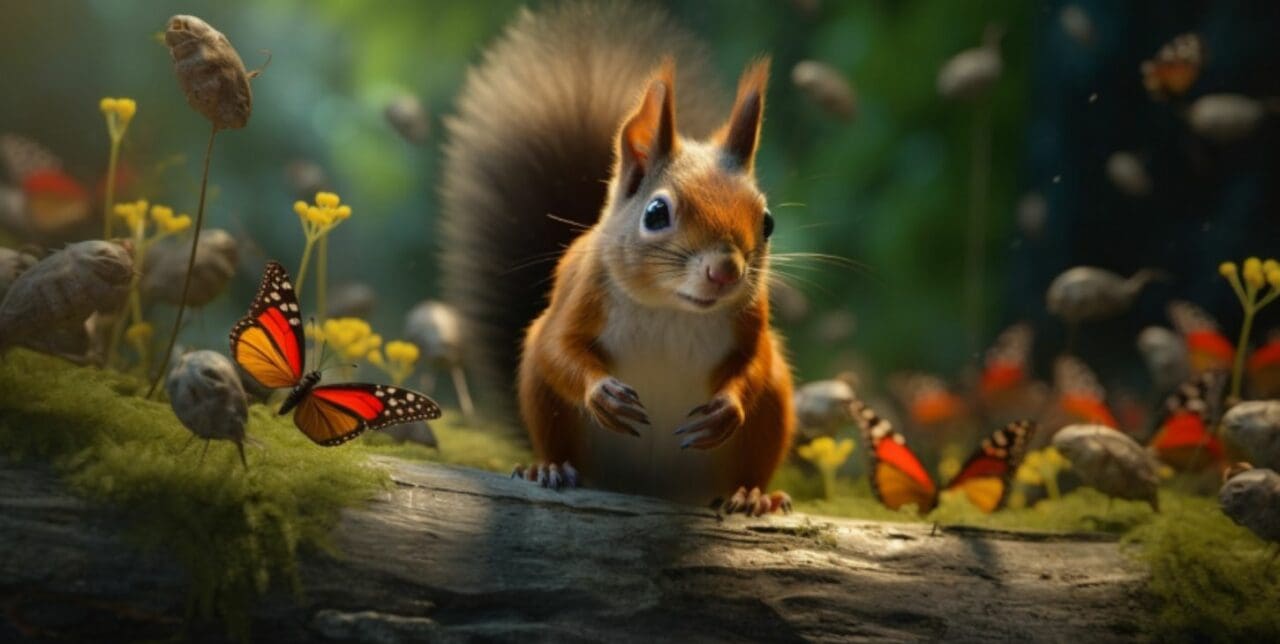
What Types of Insects Do Squirrels Eat?
Squirrels are omnivores, which means they’ll consume animals and eat plant-based foods. They have a diverse diet that includes insects. Here are some specific examples of bugs that squirrels eat:
Do Squirrels Eat Ants?
Squirrels do eat ants when they have the chance. Although their main diet consists of plants, squirrels may not prefer to eat ants, but they will if they can’t find enough food.
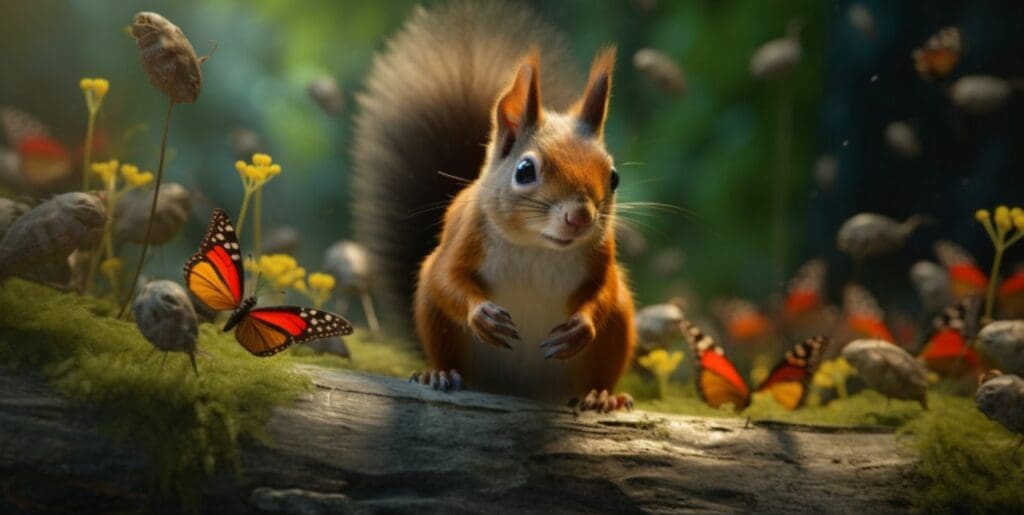
Do Squirrels Eat Worms?
Earthworms can fall victim to hungry squirrels searching for a quick protein boost. Some ground squirrels are also known to eat worms occasionally after heavy rainfall when they surface above ground level.
Do Squirrels Eat Mealworms?
Mealworms aren’t just reserved for birds; many squirrels will eat worms. These larvae serve as great sources of essential nutrients like protein and fat that are imperative to squirrels’ growth and overall health.
Do Squirrels Eat Cockroaches?
Cockroaches rarely contribute to a squirrel’s menu. However, squirrels have been known to consume them occasionally when food options are limited.
Do Squirrels Eat Cicadas?
Yes, squirrels do eat cicadas. During cicada emergence years, when they are abundant, squirrels can be observed feasting on them. The high protein content in cicadas makes them a valuable food source for squirrels, especially when other food sources might be less abundant. So, while cicadas are not a regular part of a squirrel’s diet, just know that squirrels will often eat them when the opportunity arises.
Do Squirrels Eat Snails and Slugs?
Snails and slugs might not be the go-to meal option for most squirrels, but some species have been eating them in desperate times.
Do Squirrels Eat Mosquitoes?
These furry critters don’t go after mosquitoes because they can’t catch them while they’re flying. But, if a mosquito happens to be near a squirrel, it might end up eating it by accident.
Do Squirrels Eat Caterpillars?
Caterpillars can be a good meal for squirrels looking for food with lots of protein. Eating caterpillars helps squirrels grow and gives them energy, especially after they’ve been busy with things like having babies.
Do Squirrels Eat Lawn Grubs?
Usually, they don’t eat lawn grubs, but they might eat them if they find them while looking for other bugs or plants near the ground. Squirrels might eat these bugs because they’re curious or just because they bumped into them.
Do Squirrels Eat Spiders?
Though spiders aren’t typically considered primary prey choices by rodents like squirrels, eating them is not entirely out of character either.
Do Squirrels Feed on Termites?
Yes, they even eat termites. Termites are a rich source of protein and can be an attractive food option for squirrels, especially when other food sources are scarce.
Do Squirrels Eat Boxelder Bugs?
Yes, squirrels eat boxelder bugs, the seeds of boxelder trees. They are a common food source for squirrels, especially in areas where these trees are found.
Do Squirrels Prefer Worms over Insects?
They occasionally indulge in animal-based proteins like insects and worms when other food sources become scarce.
Do Squirrels Eat Grasshoppers?
Watch the video and see for yourself! ⬇️
Kitty City Squirrels is thrilled to share this amazing video footage with you, courtesy of @Pipthebabysquirrel on Instagram. We highly recommend checking out her feed, as it is truly exceptional. She is like the Florence Nightingale of the squirrel world, caring for these adorable creatures with unmatched compassion.
If you would like to contribute to her incredible Squirrely Rehab Paradise, make sure to visit Cindi’s linktree. Together, we can make a difference!
Nutrition and Benefits of Eating Insects for Squirrels
Bugs are an essential part of what squirrels eat, and they are beneficial for squirrels to give them nutrients to stay healthy. Even though squirrels mostly eat nuts, seeds, and fruits, bugs are also good for them.
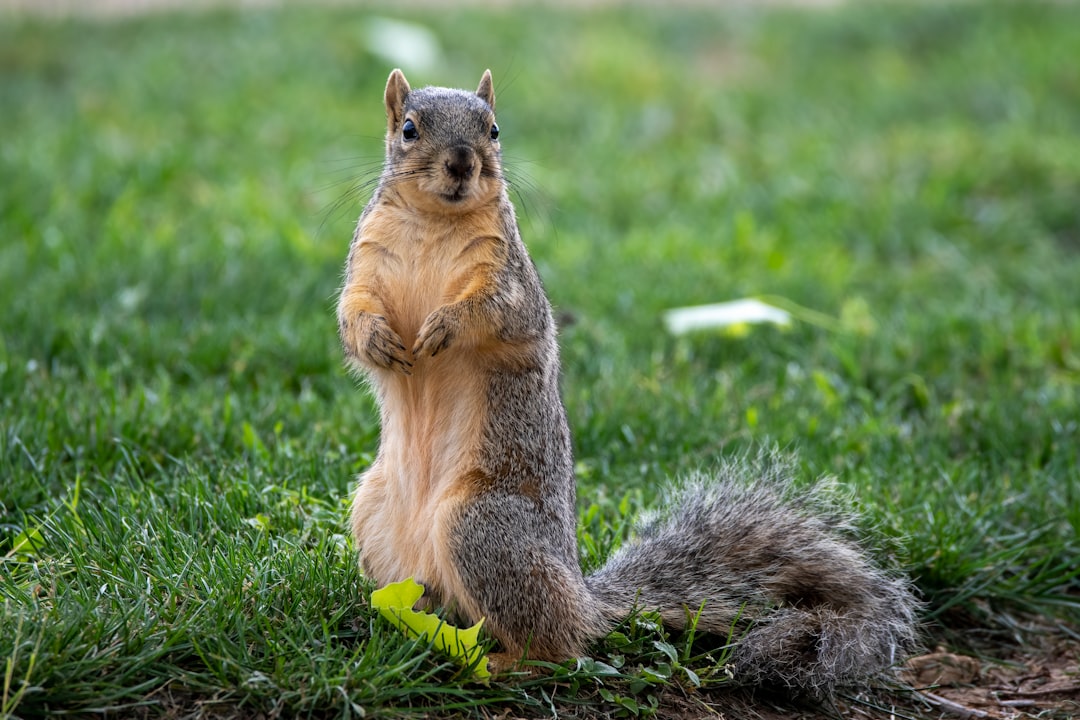
What Nutrients Do Insects Provide to Squirrels?
Below are some essential nutrients that insects provide for squirrels
- Protein: Crickets and mealworms contain more protein than most animal-based foods such as poultry or fish.
- Fats: The fat content found in insects provides energy for squirrels to engage in activities such as climbing trees and leaping between branches.
- Vitamins & Minerals: Apart from protein and fats, specific vitamins (like B vitamins) and minerals (like iron and zinc) can be found within insect-based food sources, which contribute to the overall health of squirrels by supporting metabolic processes and strengthening the immune system.
- Amino Acids: Essential amino acids, including lysine, threonine, methionine, and tryptophan, are present within insects and play a vital role in growth, development, tissue repair, synthesis of hormones, and enzyme production for optimal functioning throughout their lifespan.
Squirrels eat many different things and can change what they eat based on where they live. Eating bugs like ants, caterpillars, beetles, or worms helps them get the nutrients they need, especially when there aren’t many nuts or plants around.
Eating smaller bugs like mosquitoes or spiders is also safer for them because these bugs have fewer harmful things in them compared to bigger animals like birds.
Eating bugs is also good for the environment because it helps control the number of certain bugs that could cause problems if too many exist. Eating bugs helps squirrels stay healthy, energetic, and live longer.
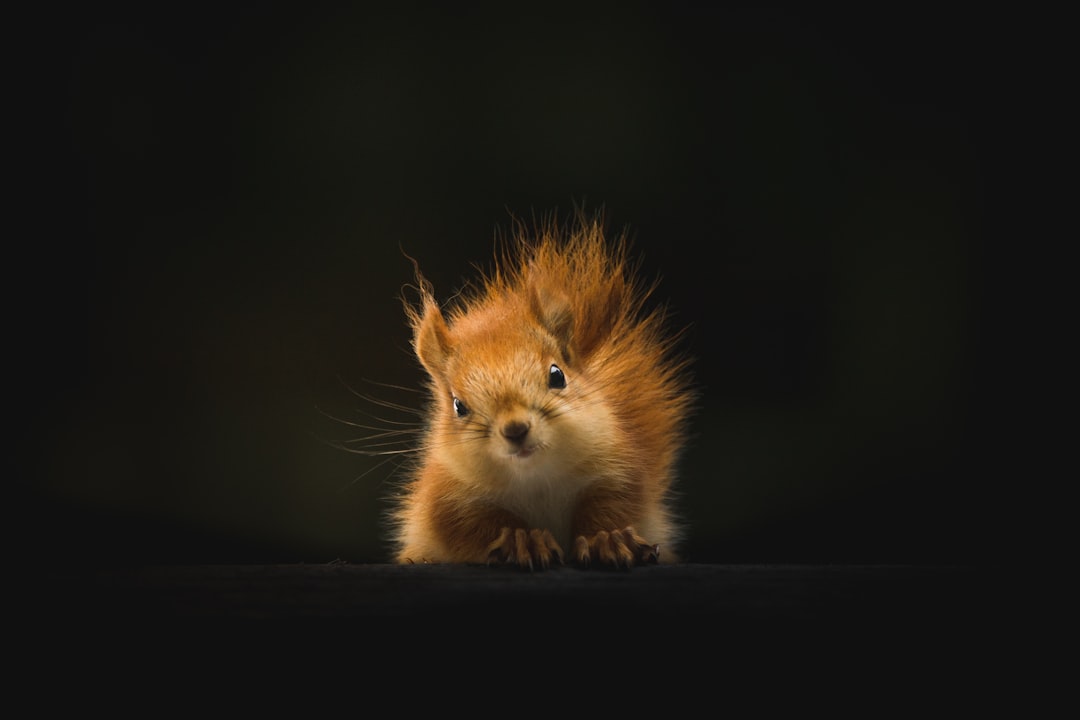
What Are the Health Benefits of Insects for Squirrels?
In this part, we’ll talk about why eating bugs is good for squirrels.
How Do Insects Contribute to Squirrels’ Protein Needs?
- Protein: Squirrels need both plant and animal foods to stay healthy. Bugs are a great source of protein for squirrels to build muscles and repair body tissues. Bugs like crickets and beetles can have up to 60-70% protein.
- Amino Acids: Bugs also have all the important amino acids that squirrels need. Amino acids help build proteins and keep the squirrel’s body working well.
- Minerals: Eating bugs helps squirrels get important minerals like calcium, phosphorus, iron, and zinc. These minerals help keep their bones and teeth strong and help their bodies work properly.
- Vitamins: Bugs are also a good source of B vitamins like B2, B5, and B12. These vitamins help the squirrel’s body use energy and keep its metabolism working well.
- Bioactive Compounds: Some bugs have unique compounds that help fight harmful bacteria. This is helpful for squirrels because there are lots of natural bacteria that could make them sick.
- Environmental Impacts: Eating bugs is also good for the environment. Bugs need fewer resources and are less environmentally harmful than other animal foods.
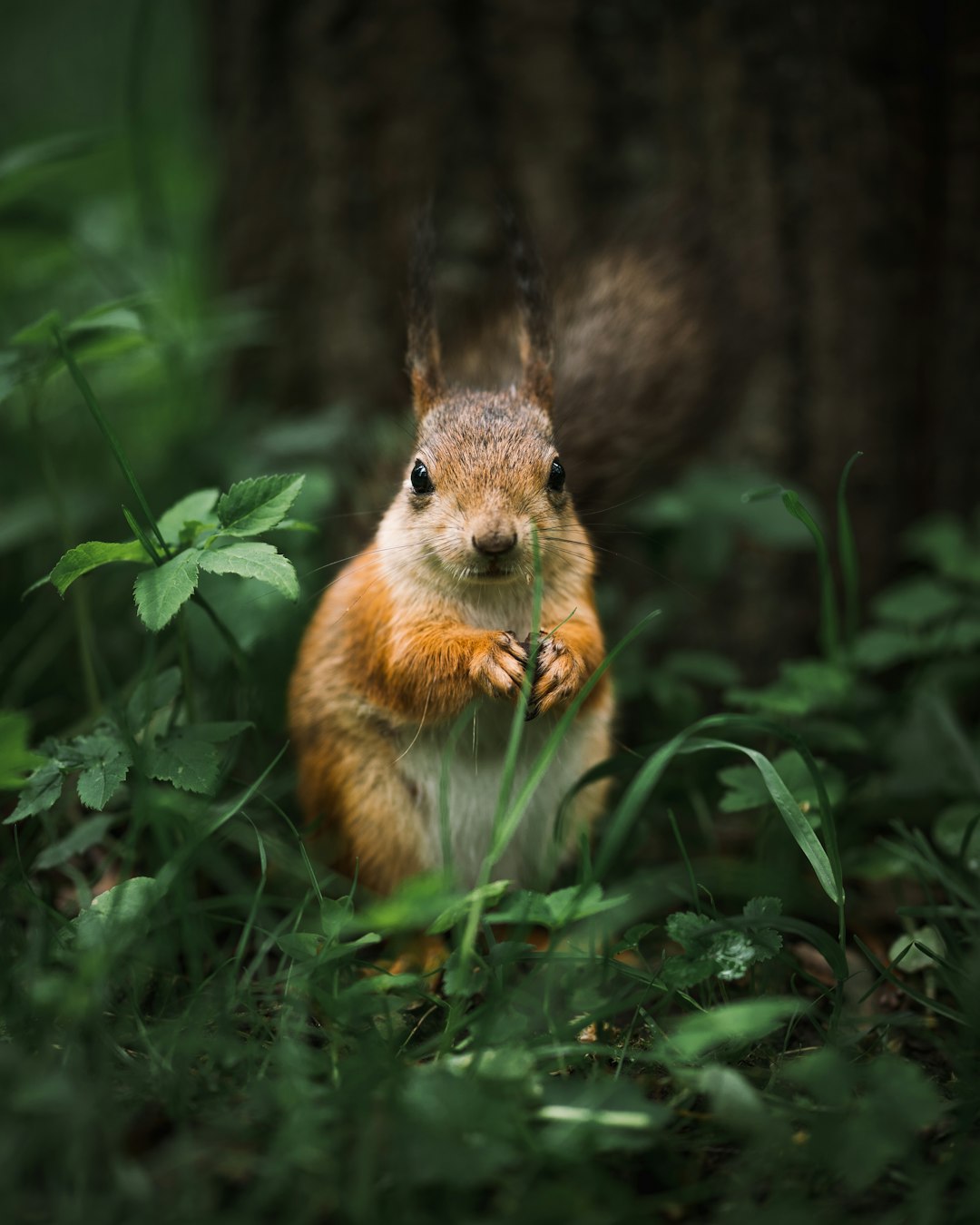
How Do Squirrels Find and Catch Insects?
Squirrels use their good sense of smell and sight to find bugs in their home area. Squirrels will forage for bugs, spiders, or worms hiding in trees, under rocks, or on the ground.
Squirrels are really smart and quick when they’re looking for bugs. They can climb trees fast, jump between leaves, or run through the grass without falling. When they find a place with lots of bugs, they can catch them using their front paws or mouth.
Seasonal Variations Affecting Insect Consumption
In the warm months, when there are many bugs because of the good weather, you’ll probably see squirrels hunt insects as a protein-rich snack.
But in the cold months when there aren’t many bugs around, especially in places with mild weather, squirrels will eat whatever like seeds, nuts, fruits, or bark instead.
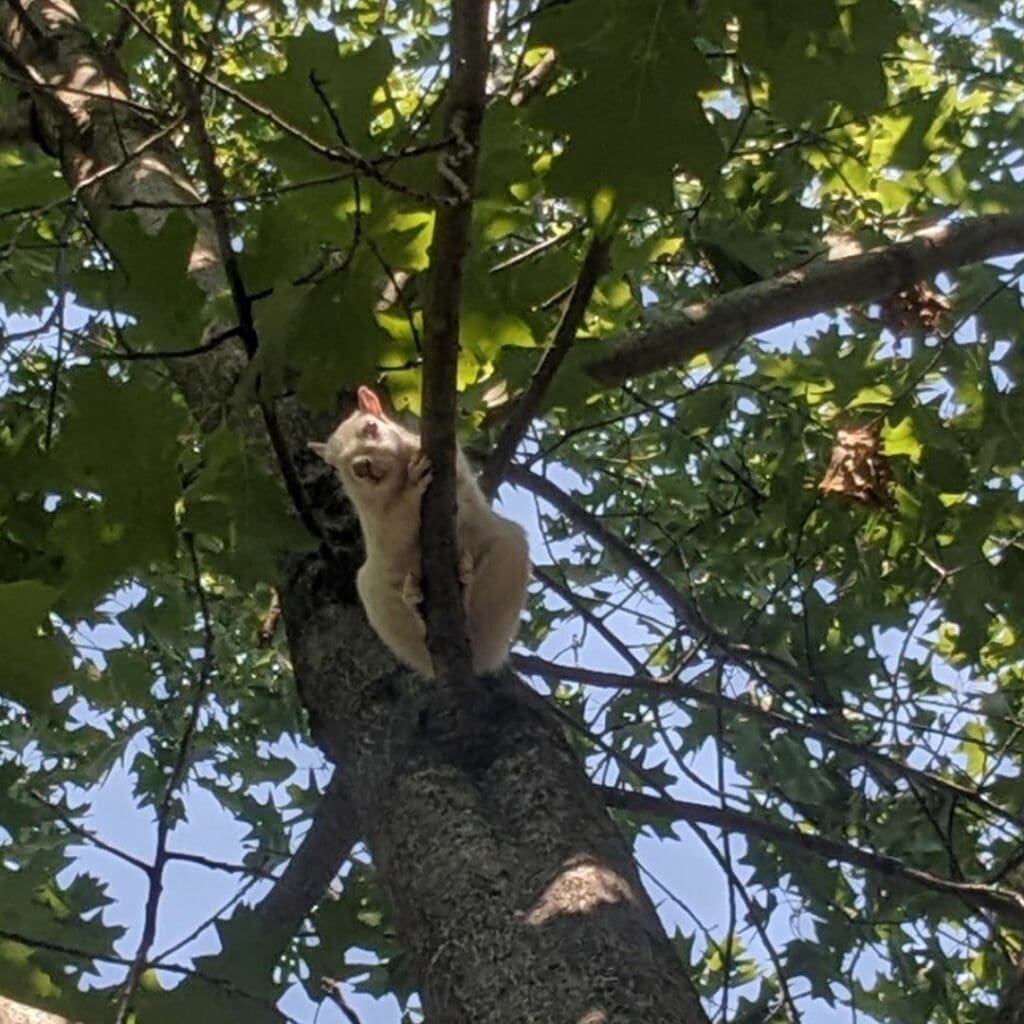
Adaptable Eating Habits
Squirrels can eat many different things. This can be many insects like ants, mealworms, caterpillars, and beetles. Squirrels are known to choose their food based on how good it is for them and how tasty it is.
Socializing and Food Sharing Behaviors
Another cool thing about how squirrels find food is that sometimes they share meals with other squirrels, especially in their family. Squirrels are considered a solo act and usually like to be alone; they might work together to catch bigger or harder-to-catch bugs like spiders or beetles.
By working together, squirrels can ensure they get enough food to stay healthy their whole life. This also helps them learn how to survive and pass these skills on to the next generation.
Subscribe to the Free VIP Squirrel Scoop Insider Magazine
Written by none other than Bart the Balcony Squirrel, this lighthearted take on life and current squirrel-related world events is sure to bring a smile to your face. From his perch on the Kitty City Squirrels balcony, Bart brings a unique and entertaining perspective to every issue. Why wait, Subscribe now!

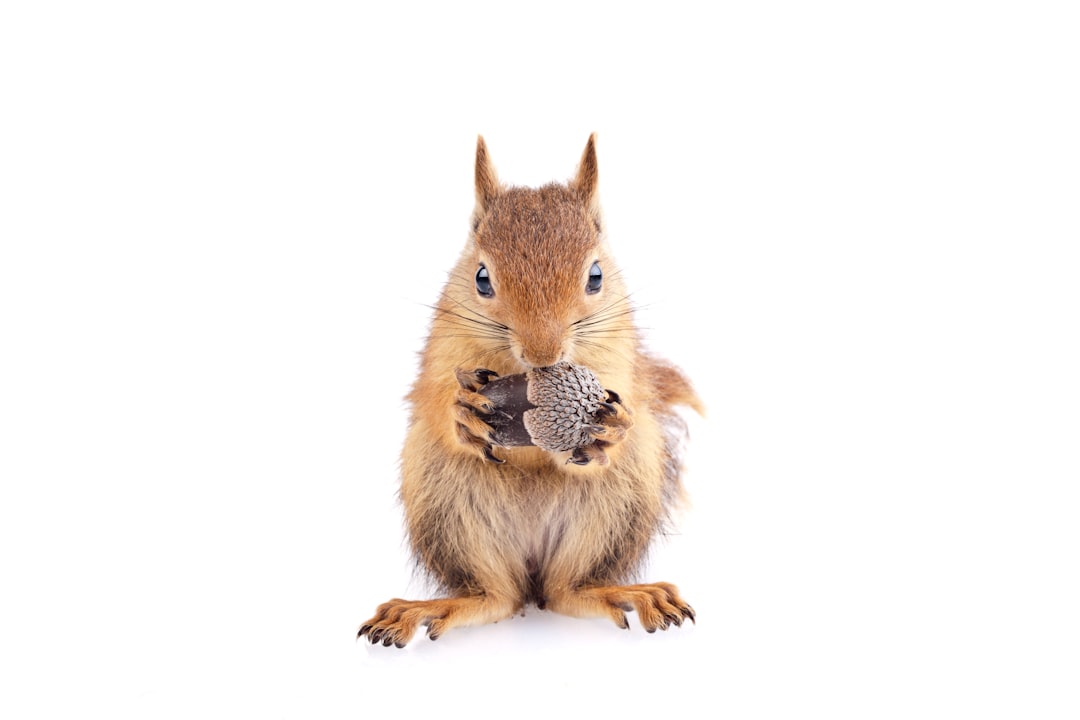
Is there anything squirrels don’t like to eat?
Here are some foods that most squirrels dislike.
- Spicy Foods: Squirrels have a sensitive palate and are deterred by spicy flavors. This is why many people use hot pepper mixtures as a natural method to keep squirrels out of bird feeders.
- Citrus Fruits: The tart, acidic taste of citrus fruits such as lemons, limes, oranges, or grapefruits seems unappealing for most squirrels.
- Onions and Garlic: Similarly to humans, the pungent smells and tastes emitted by onions and garlic can be off-putting for these creatures.
- Toxic Food Items: Squirrels avoid eating toxic plants or substances that can harm them, such as castor beans, daffodil bulbs, or English ivy berries.
- Unripe Nuts – Despite their love for nuts like acorns or walnuts, squirrels are not particularly keen on eating these when they’re still green and unripe.
- Raw Meat: For protein intake, they generally refrain from consuming raw meat due to its potential risk posed by parasites or bacteria.
- Processed Junk Food: Although you might see squirrels dining on discarded snacks laying around cities’ parks or streets occasionally because they’re opportunistic, these processed junk foods aren’t part of their naturally preferred diet.
It’s crucial to remember that individual preferences may also play a role in determining what certain wild animals find palatable; therefore, exceptions may exist. However, the foods listed above are more likely to be avoided by squirrels.
Is there food that squirrels can’t eat?
While it may seem like squirrels will eat just about anything, there are certain foods that they simply cannot, or should not, consume. These limitations are due primarily to their unique digestive systems and potential risks associated with specific types of nourishment. In this section, we will discuss some of the foods that squirrels should avoid consuming:
- Chocolate: While many humans enjoy chocolate as a sweet treat, it is toxic to most animals, including squirrels. Chocolate contains theobromine, which is harmful and potentially fatal if consumed by squirrels.
- Caffeine: Like chocolate, caffeine is toxic for squirrels and other small mammals. Even small amounts in coffee beans or tea leaves can be extremely dangerous.
- Onions and Garlic: These pungent vegetables contain compounds like thiosulphate and disulfide that can cause oxidative damage to red blood cells in squirrels if ingested in large amounts over time. Regular consumption could lead to anemia or even death.
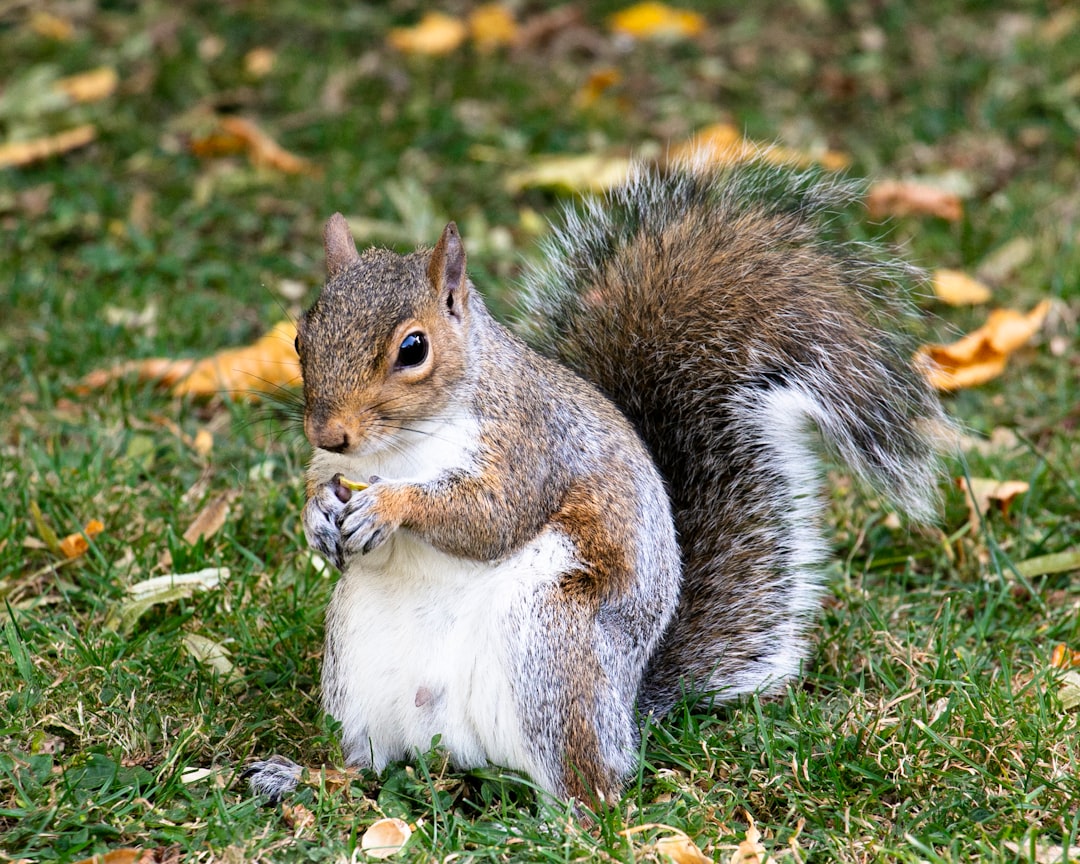
Other Kinds of Food for Squirrels to Avoid:
- Highly Processed Foods: Preservatives and artificial ingredients found in processed human snack foods can be detrimental to a squirrel’s health when incorporated into their diet consistently.
- Excessive Added Sugars: High sugar intake may lead to obesity and dental problems for squirrels; hence, minimizing access to sugary snacks such as candies is essential.
- Overly Salty Foods: Consuming excessive salt levels could result in imbalanced electrolyte levels within a squirrel’s system, which might trigger serious health issues.
It may be tempting to throw a piece of chocolate or a salty snack toward a squirrel scurrying across your lawn. It’s best to refrain from giving such food to squirrels for their well-being.
Instead, it is advisable to provide them with natural and appropriate food options that benefit their nutritional needs.
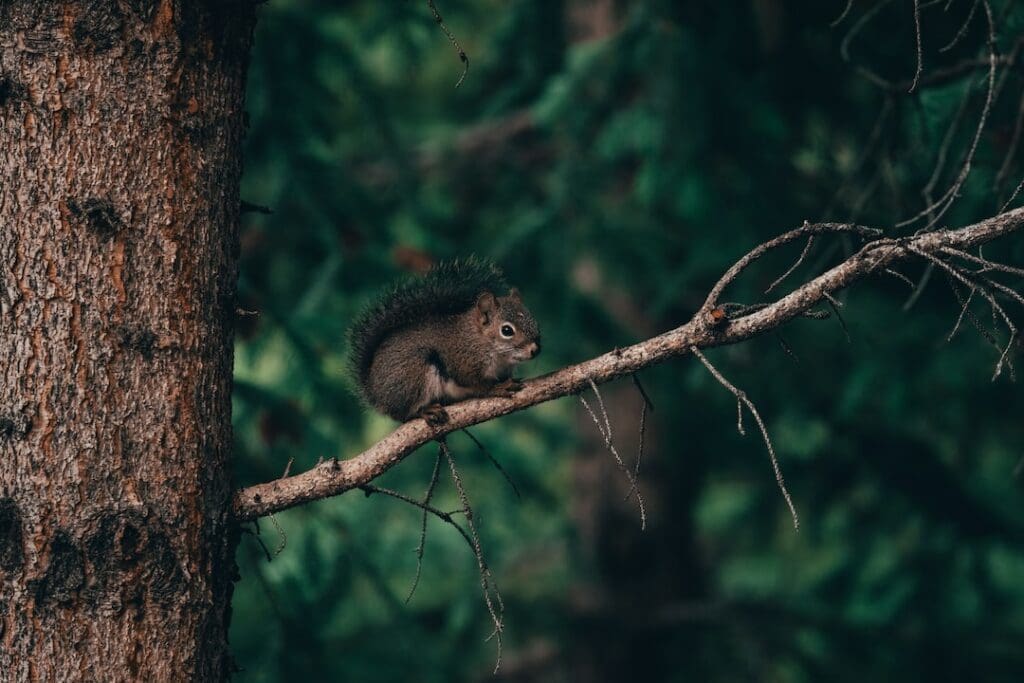
Do Squirrels Eat Dirt?
Usually, you won’t see our furry friends eating dirt on purpose. But they might accidentally eat a little bit of dirt when looking for other food or digging. Let’s discuss why this might happen and why it might look like a squirrel is eating dirt.
Accidental Ingestion While Foraging
When squirrels look for food in trees or on the ground, sometimes little bits of dirt might stick to their food or get in their mouths accidentally when they use their paws to handle the food.
Seeking Minerals and Salt
Another reason might be that the squirrel isn’t getting enough important minerals like sodium and calcium from their regular food. Even though it’s not common, some squirrels might eat dirt to get these minerals. This is called geophagy and is something other animals like monkeys and birds do.
Pica: A Rare Nutritional Disorder
In very rare cases, squirrels might start eating things that are not food, like soil. This could happen because of a condition called pica when squirrels lack certain nutrients and need to stay healthy. Luckily, this is not something that often happens to wild squirrels.
To sum up:
- Typically, squirrels won’t eat dirt.
- They may accidentally ingest tiny amounts of dirt while foraging.
- In rare cases, if lacking minerals or experiencing conditions like pica disorder, squirrels might intentionally consume soil particles.
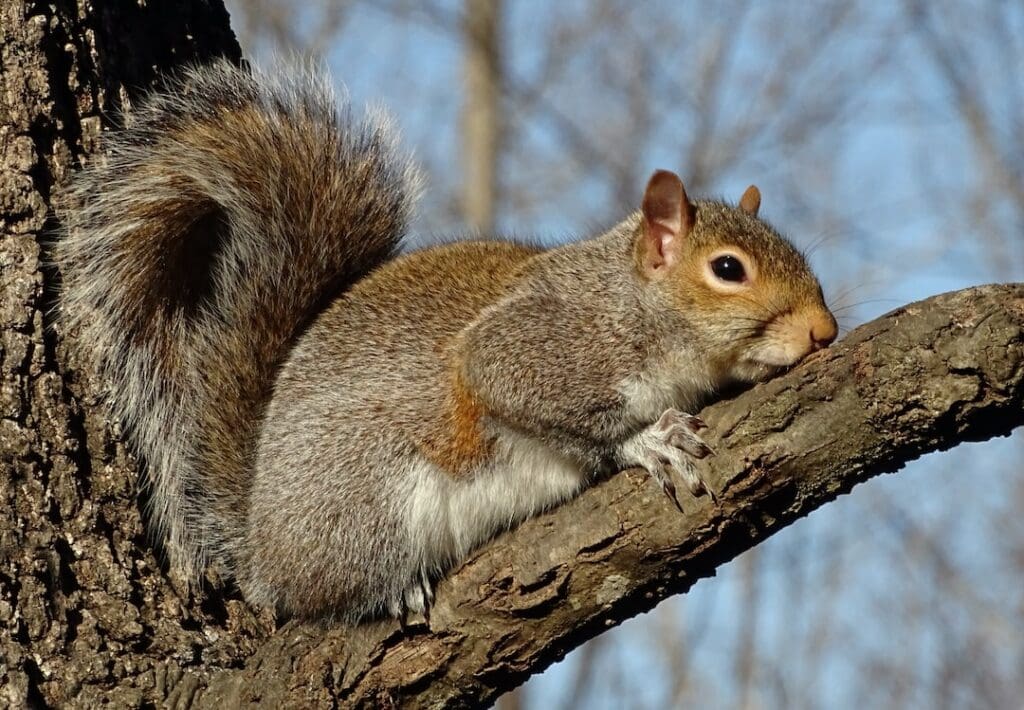
Conclusion
In the end, eating bugs is good for squirrels. Bugs like crickets and beetles have lots of protein which gives squirrels energy. They also have vitamins, minerals, and other good stuff that helps squirrels stay healthy. By eating bugs, squirrels get the food they need and help the environment by being part of the food chain.
Other FAQ – Do Squirrels Eat Insects?
Do squirrels benefit from eating insects?
Yes, insects are a great source of protein and other nutritional benefits for squirrels.
Will squirrels only eat nuts, or do they also eat other things?
While squirrels consume nuts, they eat insects, fruits, and vegetables.
Can I feed squirrels insects if I want to?
Providing squirrels with insects can be a great addition to their diet, but ensuring they are safe for wildlife consumption is important.
Are squirrels picky eaters when it comes to insects?
Squirrels may have preferences regarding their food, but generally, they are not picky and will eat a variety of insects.
Can squirrels survive without eating insects?
Yes, squirrels can survive without eating insects, but it is a beneficial addition to their diet.
Do flying squirrels also eat insects?
Yes, flying squirrels love to eat bugs, nuts, fruit, and seeds. They are also omnivorous like their tree-loving cousins.
Do Grey squirrels eat insects?
Grey squirrels possess a highly adaptable diet, making them opportunistic omnivores who consume various food sources depending on availability. While they predominantly enjoy nuts, seeds, and fruits throughout the seasons, grey squirrels will also eat insects to fulfill their protein requirements:
- Caterpillars are among the most commonly consumed insects by grey squirrels.
- Beetles and crickets serve as additional protein-rich prey for these rodents.
Do ground squirrels eat bugs?
Ground squirrels are opportunistic feeders, meaning they will eat what is readily available in their environment. This includes a variety of insects, such as beetles, caterpillars, and even grubs. So, while bugs are not the main component of their diet, they form a part of the ground squirrel’s varied food intake.
